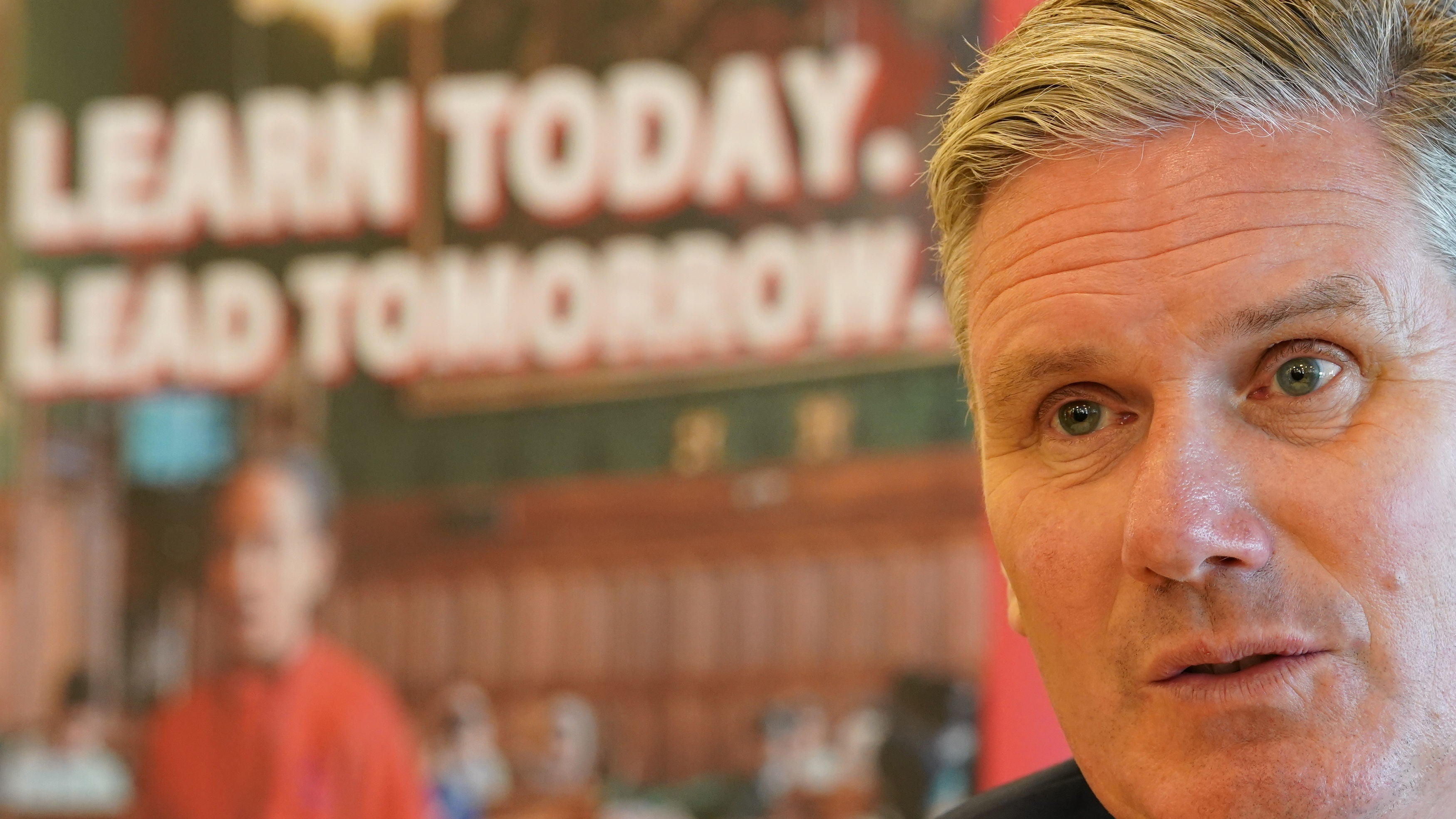Can tactical voting really make a big impact at the next election?
Talks of a ‘progressive coalition’ between Labour and the Lib Dems tends to overlook some major obstacles, as Tom Peck explains


Your support helps us to tell the story
From reproductive rights to climate change to Big Tech, The Independent is on the ground when the story is developing. Whether it's investigating the financials of Elon Musk's pro-Trump PAC or producing our latest documentary, 'The A Word', which shines a light on the American women fighting for reproductive rights, we know how important it is to parse out the facts from the messaging.
At such a critical moment in US history, we need reporters on the ground. Your donation allows us to keep sending journalists to speak to both sides of the story.
The Independent is trusted by Americans across the entire political spectrum. And unlike many other quality news outlets, we choose not to lock Americans out of our reporting and analysis with paywalls. We believe quality journalism should be available to everyone, paid for by those who can afford it.
Your support makes all the difference.A slump in support combined with tactical voting could, according to new research, leave the Conservatives with just 124 seats at the next election – their worst ever result by a considerable margin.
124 seats? Surely not?
The number would be far worse than the 165 seats in the 1997 election wipeout, and lower even than the party’s worst-ever election result, of 156 seats in 1906.
But such a result is possible. Polling by Electoral Calculus shows that, based on current voting intention in which the Conservatives are fully 18 points behind, the party is on course to win just 159 seats, losing more than half of the 365 it won in 2019. Further research by the polling group Find Out Now suggests tactical voting could cost the Conservatives a further 35 seats.
How can you predict how widespread tactical voting will be?
It is not easy but there is clear evidence. Recent by-elections have shown voters willing to vote tactically in huge numbers, with Labour and the Liberal Democrats overturning huge Conservative majorities in Selby and Ainsty, and Chesham and Amersham.
It is certainly the case that tactical voting on the kind of immense scale required for the Lib Dems to win Chesham and Amersham, where they changed a 16,000-vote defeat into an 8,000-vote victory in under two years, is usually the preserve of by-elections.
In recent years, a large number of by-elections have been held as a direct consequence of wrongdoing by an incumbent Conservative MP, and a by-election presents an opportunity for voters to express their dissatisfaction safe in the knowledge that it is extremely unlikely to have a material effect on government policy and how it might affect their lives.
At a general election, voters rarely vote out of protest, and are far more likely to use their vote in accordance with how they expect the election to impact their lives, be it on tuition fees, net zero, or how to pay for social care.
But when a widespread desire for change becomes established, history shows UK voters are prepared to vote tactically. Blair’s 1997 landslide majority also saw Paddy Ashdown’s Lib Dems more than double their seats, from 18 to 46.
What can Rishi Sunak do about it?
John Curtice believes tactical voting will have little impact given the Conservatives are facing “electoral wipeout” anyway. Heading for 159 seats would be so bad, that heading even lower to 124 would make precious little difference. Of course, Rishi Sunak still has a year or more to turn his fortunes around. Polling is more volatile than ever before, and voters more fickle. An improving economic situation is highly likely to close the gap with Labour but there are many factors conspiring against him. In the last three elections, the SNP have dominated in Scotland, winning almost all of the available 56 seats, most of which had been solidly Labour for some time. The downturn in SNP support, owing in part but not all to the embarrassing spectacle of police investigation into party funding, has hugely benefited Labour at the worst possible time for the nationalists.
The country has a clear anti-Tory majority. If voters are prepared to strategise to keep them out, why can’t parties make it easier for them?
There are suggestions that Keir Starmer and Ed Davey will actively cooperate in seats where only one of their parties stands a realistic chance of victory, but perennial talk of the “progressive coalition” tends to be overly simplistic.
Cooperation between Labour, Lib Dem SNP and Green is harder than people imagine. To take but one example: Labour would take the view that abolishing Trident would be electoral suicide, whereas closing the nuclear submarine base at Faslane and removing nuclear weapons from Scotland is a flagship SNP policy. Greens, too, could not plausibly support nuclear weapons.
Join our commenting forum
Join thought-provoking conversations, follow other Independent readers and see their replies
Comments